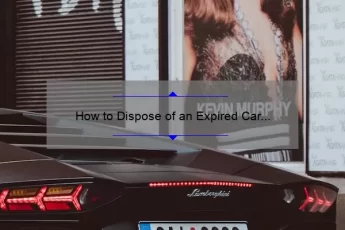Injectors don’t spray enough for the engine to run efficiently
E85 is a fuel that contains 85% ethanol. This alcohol is highly hygroscopic and can draw water from the air and corrode parts of the engine that are not protected. For example, the engine’s injectors require ferrous metal parts to operate properly, and ethanol is not a good fuel for those parts.
If this problem is happening to you, there are some simple solutions that will solve the issue. First of all, check the injectors themselves. The fuel in your car can become caked with buildup if the injectors do not spray the required amount of fuel.
E85 has a higher octane content than gasoline, so your engine can use more spark, resulting in a higher horsepower. This can translate to as much as 25 to 50 horsepower. Ultimately, this makes E85 a good choice for high-performance cars.
If this is the case, a good solution is to clean the injectors using a fuel injector cleaner. This cleaner will help clean out the fuel system, remove carbon buildup and increase the octane value. Some of these cleaners also contain lubricants and stabilize the fuel. Look for a product that says it’s a “3-in-1” or “5-in-1” product.
Another way to increase the flow rate of E85 is by upgrading the fuel injectors and fuel pump. The smallest injector for use with E85 is a 750cc unit, but a 1000cc unit is more common and is the most effective starting point.
E85 also has a higher octane than premium fuel, so it’s possible to make more power using it. But you should keep in mind that E85 is less energy dense than gasoline. Therefore, the fuel demand of E85 will be higher than that of gasoline.
Vehicles must have a specific fuel system
E85 is a fuel that has been approved for use in some vehicles. It is a blend of 85% ethanol and 15% gasoline. E85 is made specifically for these vehicles and requires specific changes to the vehicle’s fuel system. Because of these changes, it can only be used in vehicles that are flex fuel, which are those that have been modified to run on fuel with a higher ethanol content than gasoline.
Several components of a vehicle’s fuel system must be upgraded to run on E85 fuel, including the fuel pump and injectors. It is also necessary to install a flex fuel sensor and compatible fuel lines. The higher octane content of E85 fuel allows engines to run with higher boost pressure and ignition timing, reducing the risk of detonation.
Vehicles that aren’t flex fuel are not recommended for street use. Those who do use flex fuel must make sure that their vehicles are equipped with an engine management system that is designed to run on both ethanol and gasoline. For example, AEM Performance Electronics’ newest generation of engine management systems comes with built-in ethanol support.
Most modern vehicles don’t require a major modification to run on E85, but if you want to use E85, you’ll need to make sure that your engine can handle the fuel. There are four important parts that must be replaced to run on ethanol, including the fuel pump, the injectors, and the sensor.
Using E85 is a good idea for those who want to reduce their carbon footprint and save money. However, you should be cautious because E85 is harsher on your vehicle than regular gasoline and may damage plastic parts, fuel lines, and O-rings. Therefore, it is best to run on E85 only if your vehicle is specifically built to run on flex fuel. If you’re not sure, check your vehicle’s green badge on the back.
It costs more per gallon than regular gas
In some areas, the cost of E85 fuel is cheaper than regular gas, but not everywhere. In the Midwest, for example, E85 is only three cents more per gallon than regular gas. This is a result of the ethanol industry’s subsidies, which subsidize corn farmers to produce ethanol with a 45-cent tax credit. But the price of E85 may vary from region to region depending on geopolitical events and fluctuations in the energy markets.
According to USA Today, E85 has a 28 percent mileage penalty compared to regular gas. That means that a car using a full tank of E85 will only get eighteen mpg. However, many consumers are willing to make that sacrifice for the higher mileage. This means that a tank of regular gas would take a hundred miles more than a tank of E85 fuel.
If you’re thinking of purchasing an E85-capable vehicle, you’ll need to look for one of the few Japanese models that has the technology. The 2011 Nissan Armada is one of the few Japanese vehicles available with flex fuel capability. By buying an E85-capable vehicle, you will be helping to reduce our dependence on foreign oil. And this means more money will stay in our country.
One of the problems with E85 is that it costs more per gallon than regular gas. However, the environmental benefits outweigh the cost. The fact is, the process of developing a car to run on E85 is cheaper than that of making a car run on other alternative fuels, such as diesel.
There are currently more than 3,900 stations that sell E85 in the U.S., and you can find one near you by visiting Alternative Fueling Station Locator. The Environmental Protection Agency and Oak Ridge National Laboratory administer the database. Many stations sell E85 and have information on how to purchase it.
It damages rubber seals
Using ethanol in your car can lead to a number of problems, including breaking down rubber seals and deteriorating engine performance. Although ethanol is not corrosive, it does attract moisture. While this moisture can damage non-metallic components, it can also damage rubber seals. Because of these issues, it is recommended that you use regular fuel in your vehicle.
Although it is safe for most cars and is made specifically for flex-fuel vehicles, repeated use of e85 can damage regular vehicles. The alcohol in ethanol can cause damage to the rubber seals and other components in your fuel system. Compared to regular gas, e85 attracts moisture, which can damage rubber seals, gaskets, and non-metallic parts of your car.
Ethanol can also damage rubber fuel lines and fuel tanks. It can also contaminate the fuel tank and fuel line, posing a fire hazard. Ethanol does not harm steel fuel tanks, but it can ruin fiberglass and composite fuel tanks. This is because ethanol is a stronger solvent than gasoline and attracts moisture. As such, even low concentrations of ethanol can destroy these components.
It causes corrosion
Ethanol (E85) is an alcohol and does not cause corrosion in its pure state. However, it can cause corrosion in the presence of water, so the mixture must be handled with care. The presence of water in the fuel can damage aluminum parts. It is also important to avoid storing E85 in storage tanks, as it can attract moisture from the air.
Older vehicles are not advised to use E85, as it corrodes the fuel system components. Ethanol is also corrosive to rubber and magnesium. It may require modifications to the vehicle’s ignition system and fuel system in order to run it on E85 fuel. Also, replacing the fuel system and replacing some of the fuel hoses may be necessary.
Moreover, E85 fuel is susceptible to moisture from cold weather. The presence of water in the gas tank has the tendency to accelerate the corrosion process. It can also choke carbureted engines and damage fuel injectors. For these reasons, the problem has been growing in recent years. However, there is a solution.
One way to avoid E85 is to switch to pure gasoline. Pure gasoline contains less than 2% ethanol. If you don’t want to switch, try using methanol, which is safer for street-driven engines. However, methanol is corrosive as well. That’s why the fuel in Indy cars was a mix of methanol and ethanol prior to 2006. Similarly, NASCAR recently switched to Green E15 for its Cup cars.
E85 fuel can also cause corrosion in fuel systems. It can corrode fuel filters, fuel lines downstream from the fuel filter, and fuel injectors. These problems can reduce engine efficiency, power, and drivability. This is why it’s important to maintain a fuel system that resists corrosion.








